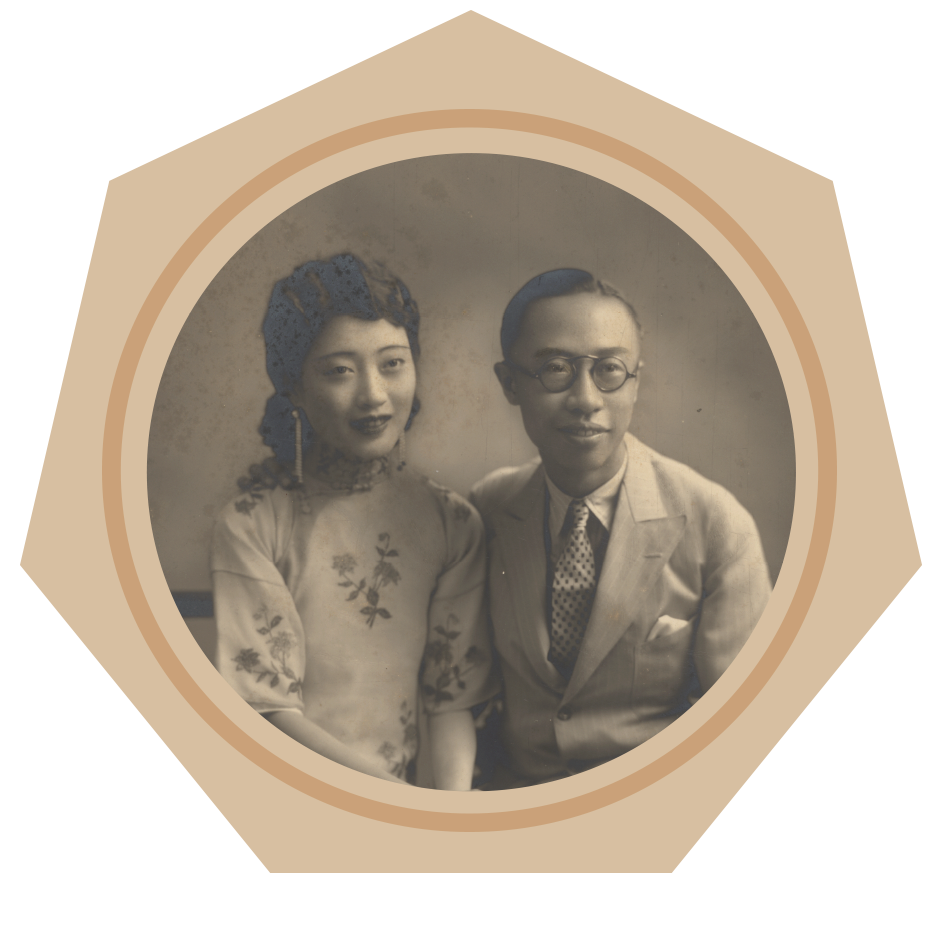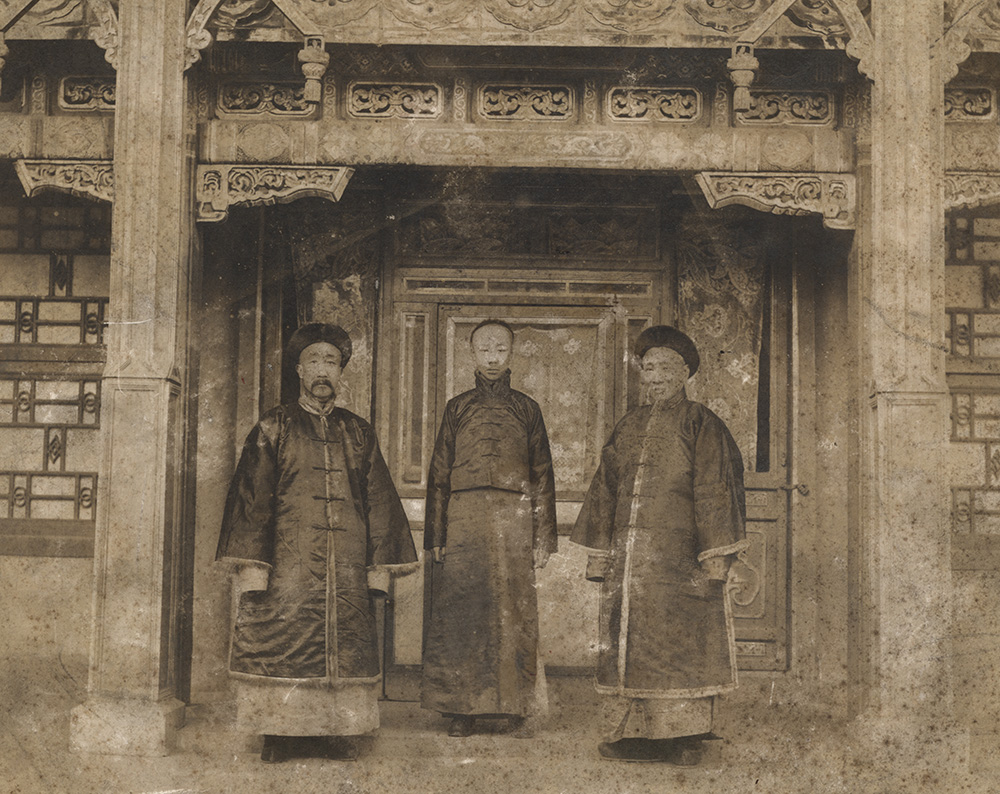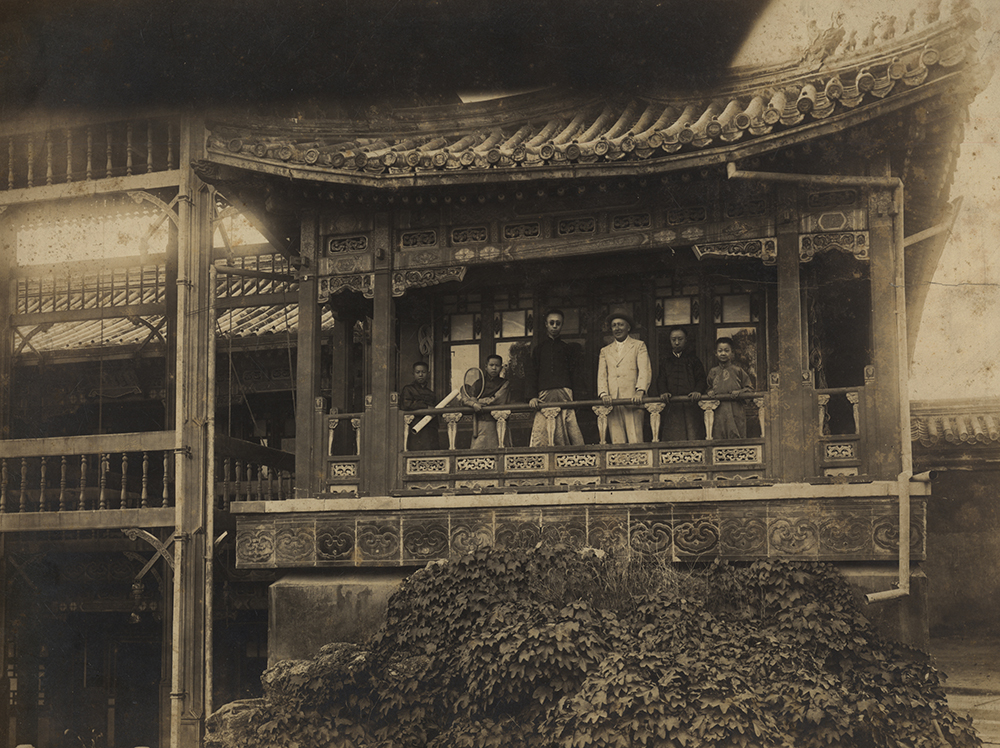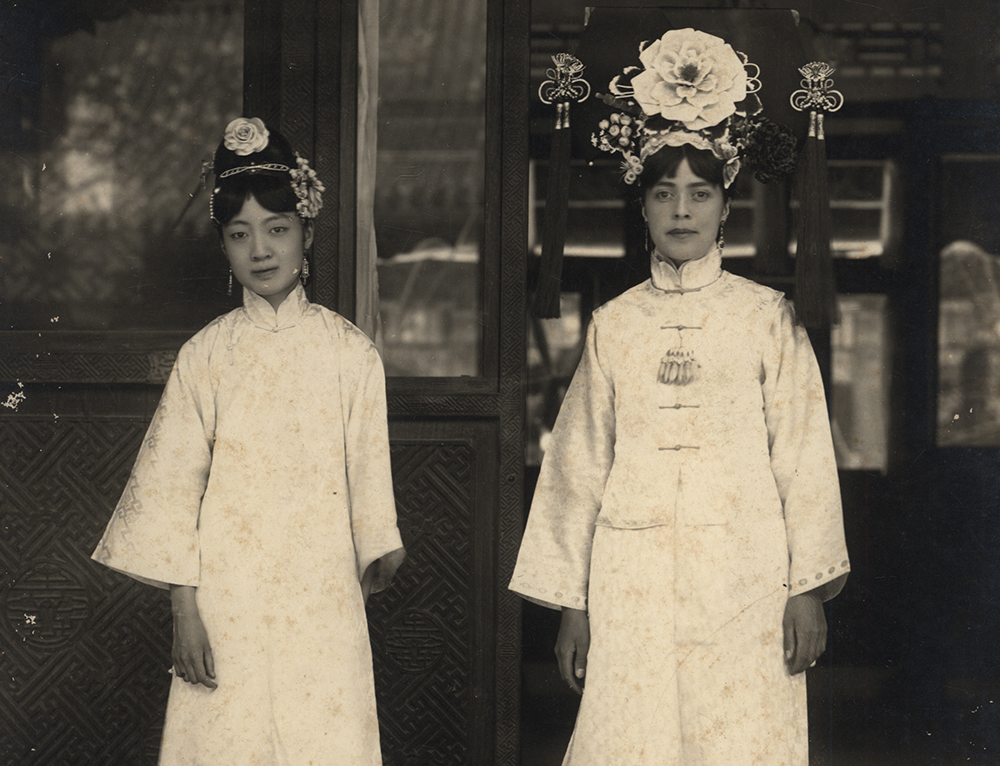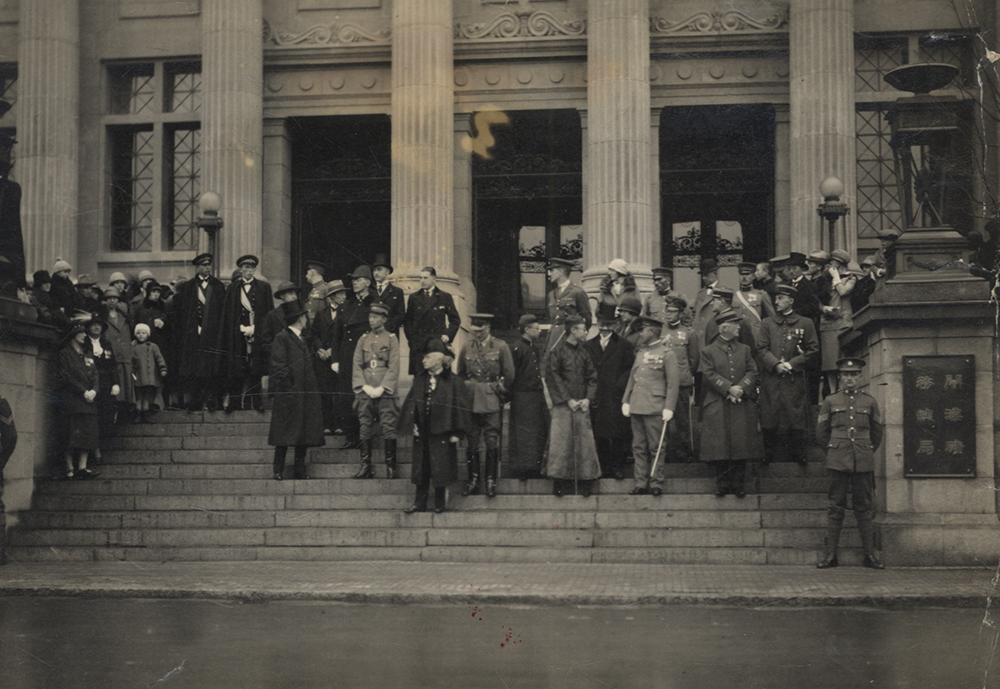Puyi spent his childhood in the sequestered palaces, knowing not much about the world outside the walls of the Forbidden City. He as a child had acquired his learning of the Confucian classics and histories under the guidance of a number of imperial mentors and prominent scholars. It was, however, Reginald Fleming Johnston (1874-1938) who laid the foundation of Puyi's understanding of Western language, sciences, and historical and geographical knowledge. After the fall of the Qing regime, Puyi still kept his special status and the "title of sovereignty." As he grew older, the desire to revive the Qing rule gradually took root, and he started building active contact with activists outside the Forbidden City.
The images on view in this section are those taken by the imperial couple with their tutors and friends, offering a faithful documentation of their interaction with both Chinese and foreign acquaintances during their stay in the Forbidden City and when residing in Tianjin. The late Qing and the early Republic were a time of change and turbulence, with international affairs entangled and complicated. Characters and talents of all kinds made their debuts on historical stage in droves. The images vividly portray another aspect of the lives of the last emperor and empress of China, and from which the audiences may also examine in detail the costumes and accessories worn by prominent court figures of the time.
The Imperial Tutors Chen Bao-chen and Zhu Yi-fan
- Early Republic
- Collection of the National Palace Museum
Chen Bao-chen (1848-1935), courtesy name Bo-qian, was a native of Min County of Fujian province. In the 7th year of Emperor Tongzhi's reign (1868), he passed the imperial examination and acquired the degree of jinshi. Throughout his career Chen held positions such as Chancellor of the Grand Secretariat and Deputy Minister of Rites. He was also known for his frank and direct criticisms. During the Sino-French War, he, as the Minister of Nanyang Affairs, was accused of hampering the state. When his mother passed away, Chen used the opportunity to return to his home and lead a reclusive life in the countryside. In the first year of Emperor Xuantong's reign (1909), he returned to Beijing at the recommendation of Zhang Zhidong (1837-1909) to become the Master of Yuqinggong Palace, the principal teacher of Puyi (1906-1967). He was also skilled in the arts of calligraphy and poetry. Zhu Yi-fan (1861-1937), a native from Lianhua County of Jiangxi province, received the jinshi degree in the 16th year of Emperor Guangxu's reign (1890). Over the years, he held positions such as Commissioner of Education of Shaanxi and Shandong provinces, Superintendent-general of Imperial University of Peking, and Deputy Censor-in-Chief of the Censorate. He also served in the Yuqinggong Palace.
Both Chen Bao-chen and Zhu Yi-fan served as tutors of Chinese classics for Puyi during his little court period, becoming the teachers of China's last emperor. Zhu Yi-fan's career as imperial tutor lasted until Puyi left the Forbidden City in 1924. On the other hand, Chen Bao-chen remained at the service of Puyi, following him from Beijing to the Zhang and Jing Gardens in Tianjin. He avidly supported the idea of restoring the Qing imperial rule, but spoke out against Puyi's reliance upon the Japanese military force. He spent numerous attempts trying to persuade Puyi not to depart for Manchuria, and even went as far as traveling to northeast China to convince Puyi not to accept the position as the Emperor of Manchukuo. However, it was all for naught, and he returned disgruntled. In Tianjin, Chen died of illness in 1935.
The Imperial Tutor Reginald Fleming Johnston
- Early 20th century
- Courtesy of the Palace Museum,Beijing
Sir Reginald Fleming Johnston was a Scottish academic. He took his Chinese pseudonym Zhi-dao from the phrase "shizhiyudao" in the Analects of Confucius, which means "a gentleman whose heart is set upon the Way." After studying at the University of Edinburg, he received his master's degree from the University of Oxford. He arrived in China in the 24th year of Emperor Guangxu's reign (1898), and served in various posts, including the secretary for the Governor of Hong Kong and the District Officer in the British leased territory of Weihaiwei. He was fluent in Chinese, and traveled to many places across China. His understanding of Chinese literature, history, and geography, as well as his in-depth understanding of Confucianism, made him a true expert on China.
Given the advantages including his special political background and solid foundation in sinological studies, Johnston was recommended by Li Hong-zhang's second son Li Jing-mai (1876-1938) to become the English instructor for Puyi in 1919. Since the beginning of his long-lasting relationship with Puyi, the Scottish academic's ways of speaking and thinking, his mannerism, and even the way he dressed all became subjects of imitation for the young defunct emperor who was eager to learn and thirsty for knowledge.
Johnston proceeded to teach Puyi about the latest knowledge and ideas from the West, encouraging the young emperor to study abroad. He also gave Puyi the English name "Henry." For Puyi, this foreign part-imperial tutor and part-friend was also his companion in the Forbidden City. He awarded Johnston with an insignia of high rank and an honorary title; he also gave him the privilege to ride the palanquin within the Forbidden City. Puyi even provided Johnston with the Yangxingzhai Studio as his personal study, and a residence in Yingtaogou on the Xishan Hill as his summer resort. After Puyi was expelled from the Forbidden City, Johnston's job as the imperial tutor came to an end. In 1930, he returned to Great Britain, concluding his 30-some-year stay in China. Throughout his life, Johnston wrote a great number of works on Chinese politics, society, and traditions. Twilight in the Forbidden City is probably considered the most popularly read book among his works.
The Two English Tutors of Wanrong
- Early 20th century
- Courtesy of the Palace Museum, Beijing
Numerous short letters written in English from Empress Wanrong to her husband Puyi remain in the archives of Puyi. Wanrong's first contact with the English language could probably be traced back to her earlier days living in Tianjin. However, it remains unclear as to how she began learning the language. After she entered the Forbidden City, existing archival records indicate that two female English tutors of foreign origins were hired to help the empress learn the language. Puyi even picked the English name "Elizabeth" for Wanrong.
One the two English tutors was Shiying. All we know today about her is that she was the daughter of a clergyman from the Methodist Episcopal Church in China. There are no accounts providing information on her background or her activities inside the palace. Perhaps this had to do with her relatively short tenure as tutor in the imperial court. The other female tutor, Isabel Ingram, was the daughter of James Henry Ingram (1858-1934), a Congregational missionary. She was born in Beijing, and her mother was Myrtle Bell Prough (1871-1941). In 1922 Ingram returned to China after she had graduated from Wellesley College in Massachusetts, United States, to become the English tutor of Wanrong. She developed a close relationship with the empress and successfully ignited her interest in the English language. Some of the photos capture the presence of Ingram next to Wanrong on selected public occasions.
The Social Life of Puyi and Wanrong at the Zhang Garden in Tianjin
- 1920 's
- Courtesy of the Palace Museum, Beijing
In 1924, Puyi was hastily expelled from the Forbidden City, and his sixteen years of life within the confines of the Forbidden City came to an end. Afterwards, with the assistance of Japan's envoy to China Kenkichi Yoshizawa (1874-1965), he was able to hide at the Japanese Consulate in Beijing before relocating to the Zhang Garden and the Jin Garden in the Japanese concession in Tianjin. During his period of residence in Tianjin, Puyi actively sought out and participated in public activities, hoping to win the support of Western nations for his ambition of reinstating the Qing imperial regime. In these images, apart from those capturing Puyi, Wanrong, former officials of the Qing imperial court, and imperial princesses, there are also photographs taken during public meetings and visits between the imperial couple and foreign delegates, envoys, military officials, and other dignitaries. When in Tianjin, Puyi's circle of friends and acquaintances grew rapidly, as if breaking away from the chains of the Forbidden City. He visited and boarded warships docked in the port, conducted inspection visits to mines, and even attended tennis club events and took photos with athletes.
